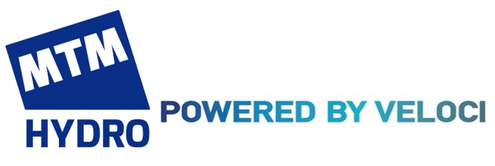When shopping for a pressure washer, it’s easy to get caught up in the numbers. The specs, PSI and GPM, are often plastered across every box and product description. But what do they actually mean? And more importantly, how do they affect cleaning performance?
In this guide, we’ll break down the difference between PSI vs GPM in a pressure washer, explain how these numbers work together, and help you choose the right setup for your cleaning tasks. Whether you’re a homeowner, contractor, or auto detailer, this pressure washer buying guide will give you the knowledge to clean smarter, not harder.
What Is PSI in a Pressure Washer?
PSI (Pounds per Square Inch) refers to the water pressure a machine delivers. It's the force that blasts dirt, grime, and buildup off surfaces.
- Higher PSI = more forceful impact
- Ideal for: concrete, stone, brick, metal, and other hard surfaces
- Common range: 1,500 to 4,000 PSI depending on machine type
But higher isn’t always better. Too much PSI on delicate surfaces like wood, paint, or automotive finishes can cause damage.

What Is GPM in a Pressure Washer?
GPM (Gallons per Minute) measures water flow, or how much water your machine pushes out per minute.
Higher GPM = more volume = faster rinsing and better surface coverage
Ideal for: washing large areas or flushing away heavy debris
Common range: 1.2 to 4.0+ GPM
Think of PSI as “cutting power” and GPM as “rinsing power.” You need both for maximum efficiency.
How PSI and GPM Work Together: Cleaning Units
To evaluate overall performance, combine PSI and GPM using this formula:
Cleaning Power = PSI × GPM
This gives you a metric called Cleaning Units (CU). It shows how efficiently a machine cleans. For example:
2000 PSI × 2.0 GPM = 4,000 CU
3000 PSI × 1.5 GPM = 4,500 CU
So even if a unit has lower PSI, it might clean better if the GPM is higher.
Choosing the Right Balance: Project-Based Guidance
Disclaimer: The information below is a general starting point only. Every cleaning scenario is different, and pressure requirements can vary significantly depending on surface material, age, wear, and environmental factors.
We always recommend starting at the lowest possible PSI setting and carefully increasing pressure to avoid damaging the surface or risking injury. The guidance below is for reference only and may not be appropriate for all situations or equipment types.
|
Task |
Recommended Starting PSI |
Recommended GPM |
|
Car Detailing |
1,000 – 2,000 PSI |
1.2 – 3.0 GPM |
|
Siding (Soft Wash) |
100 – 800 PSI (via downstream/soft wash) |
4.0 – 10 GPM |
|
Decks (Wood & Poly) |
800 – 2,000 PSI |
3 – 8 GPM |
|
Concrete & Brick |
Residential: Start at 1,800 PSI Commercial: Start at 2,500 PSI |
Varies by project |
|
Commercial Cleaning (Steel, Cranes, Doors) |
Varies; always start low and test |
Varies by project |
Tip: For car detailing, a balanced machine with moderate PSI and steady GPM allows safe and effective use of tools like the PF22.2 Foam Cannon.
PSI vs GPM Myths, Clearing the Confusion
Myth: “More PSI always means better cleaning.”
Reality: Without enough GPM to rinse, you’ll spend more time scrubbing than spraying.
Myth: “Only GPM matters for rinsing.”
Reality: Without enough PSI to break surface bonds, water volume alone won’t clean well.
Myth: “The highest numbers always win.”
Reality: Oversized specs can damage surfaces and waste water.
How MTM Hydro Products Optimize PSI & GPM
MTM Hydro tools are precision-engineered to maximize performance across different PSI and GPM ratings. Whether you're using a 1.2 GPM electric washer or a 4.0 GPM gas-powered unit, our accessories enhance both power and control.
- Acqualine SGS35 Spray Gun: Built for comfort, control, and longevity with swivel connection.
- KobraJet Hoses: Non-marking, ultra-flexible hoses that handle high PSI and maintain flow.
- Quick Connect Fittings: Stainless steel, leak-resistant connectors that preserve pressure and reduce hassle.
Final Thoughts: Don’t Just Look at One Number
Choosing the right pressure washer isn’t about picking the highest PSI or GPM. It’s about understanding how they work together. When you know how cleaning power from PSI and GPM impacts your workflow, you can make more informed decisions and clean better, faster, and safer.
Need help finding accessories that match your pressure washer specs?
Browse our complete pressure washer accessories or explore our bestsellers to get started.

